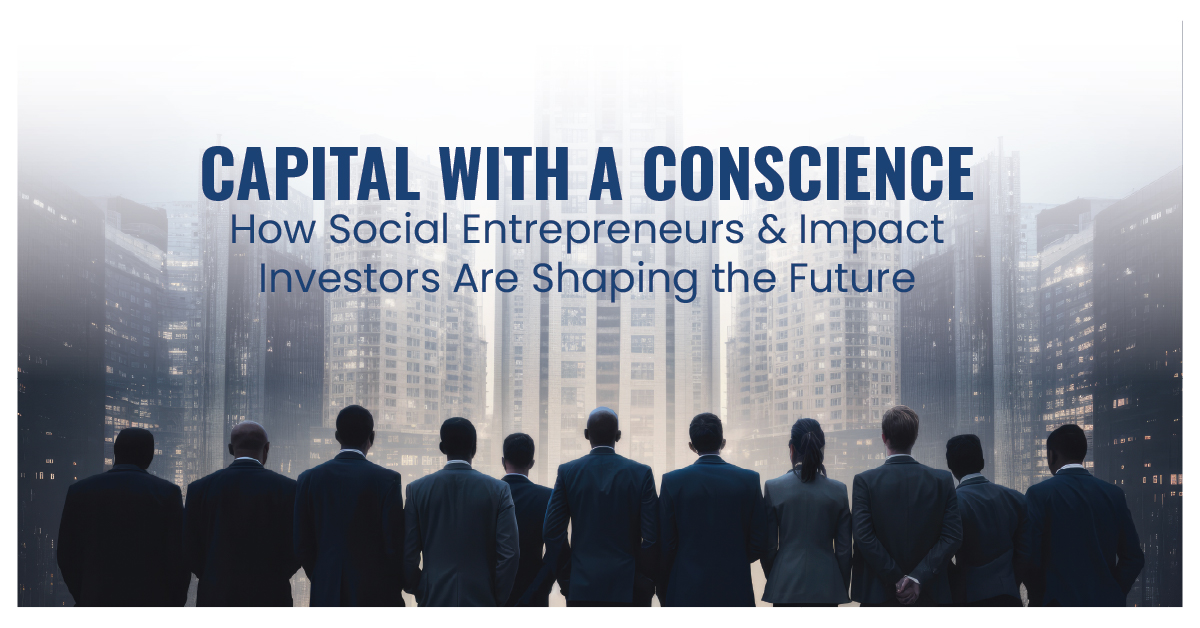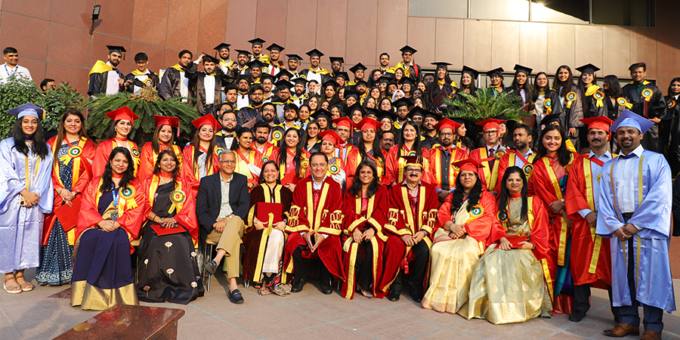In the contemporary business landscape, a new breed of entrepreneurs and investors is emerging. These individuals and organizations are challenging traditional boundaries by combining social and environmental goals with financial objectives. Social entrepreneurship and impact investing represent a shift towards a more responsible, inclusive, and sustainable form of capitalism. This change is particularly important in emerging markets like India, where challenges such as poverty, inequality, and environmental degradation remain common. Both approaches offer solutions that enable businesses to achieve profit and purpose simultaneously.
Capital with a Conscience: The Growing Influence of Impact Investing in India
Social entrepreneurship is driven by one core idea: solving societal problems through innovative and sustainable business models. Unlike traditional entrepreneurship, which focuses solely on profit maximization, social entrepreneurship aims to tackle pressing social issues while generating long-term value. Social entrepreneurs build businesses that address challenges in areas like healthcare, education, poverty alleviation, and environmental sustainability. The goal is to create lasting impact rather than short-term financial gain. In India, where over 230 million people still live in poverty, the need for affordable and scalable social enterprises is greater than ever. Government initiatives such as “Startup India,” the Atal Innovation Mission (AIM), and the support from the National Institution for Transforming India (NITI Aayog) have provided essential infrastructure and policy backing for these enterprises. Notable examples include SELCO India, which provides solar energy solutions to underserved communities, and Goonj, which addresses urban-rural divides by recycling urban waste into products useful for rural areas.
The Social Entrepreneurship Revolution: How India’s Innovators are Driving Change
Research suggests that social entrepreneurship in India is evolving rapidly, driven by innovative business models that combine social and environmental impact with financial sustainability. At FIIB, through initiatives like the Center for Innovation, Entrepreneurship, and Technology, we actively support and develop future leaders in this vital area. A 2021 study on social entrepreneurship in India indicates that social enterprises not only address critical societal issues but also create jobs and empower marginalized communities—reshaping the country’s development trajectory.
Impact investing is a complementary practice that bridges the gap between capital and social impact. It involves investments that generate both financial returns and measurable social or environmental benefits. Unlike traditional investing, which focuses exclusively on financial gains, impact investing emphasizes growth that delivers positive change. In India, the sector has experienced remarkable growth, attracting venture capitalists, private equity firms, and foundations interested in opportunities in renewable energy, healthcare, education, financial inclusion, and clean technology. Research from the Global Impact Investing Network (GIIN) revealed that by 2020, the impact investing market in India had reached approximately $6 billion. This growth has been fueled by factors such as the country’s large and diverse population, rapid economic expansion, and significant social challenges. The impact investment landscape focuses on early-stage social enterprises in sectors like healthcare, agriculture, education, and renewable energy. Dedicated impact funds are also emerging, shifting the focus of capital allocation from short-term profit maximization towards long-term, sustainable growth that benefits both investors and society.
Synergies Between Social Entrepreneurship and Impact Investing
While social entrepreneurship and impact investing are distinct fields, they are closely interrelated. Social entrepreneurs develop innovative solutions to social problems, while impact investors provide the necessary capital to scale these solutions. Their relationship is symbiotic:
- Access to Capital: Social entrepreneurs can struggle to grow and scale their ventures without adequate financial support.
- Mutual Benefit: Impact investors rely on the creativity and innovation of social entrepreneurs to generate both returns and social value.
For example, consider an Indian social enterprise that provides microloans to women in rural areas, enabling them to start small businesses and improve their livelihoods. This enterprise depends on impact investors for the capital needed to expand its operations and reach more beneficiaries. In turn, investors benefit from the potential financial returns of this growing business model while contributing to the social empowerment of women.
The Future of Business Is Impact-Driven
Social entrepreneurship and impact investing represent a fundamental shift in how business is conducted—one that values purpose alongside profit. As the world faces increasingly complex social, environmental, and economic challenges, innovative solutions that create sustainable value have never been more urgent. Social entrepreneurs and impact investors are at the forefront of this transformation, working together to drive economic growth while addressing pressing global issues. For students at institutions like FIIB, this convergence of business, social impact, and investment presents an exciting opportunity to be part of a movement that redefines success. By embracing social entrepreneurship and impact investing, future leaders can help shape a world where business is not merely about profits but also about making a positive, lasting impact on society and the planet.














Leave a comment